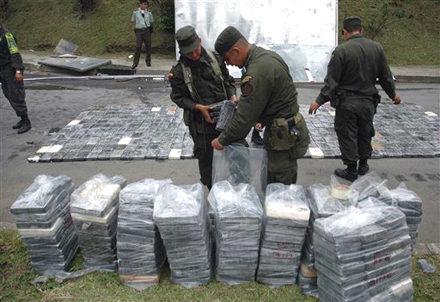Jose Padilla, aka the “Dirty Bomber,” was just re-sentenced for his involvement in terrorist activities. This sentencing should serve as a reminder that a threat among delusional and radicalized citizens constantly threatens the nation. Domestic terrorism will never be ridden from our society however; initiatives have been taken in recent years to ensure such threats are mitigated. Those initiatives have been written but their execution has been marginal at best even though some persons believe that we have not witnessed a “catastrophic” terrorist incident inside the United States since 9-11.
August 2011, the United States Executive Branch released its Empowering Local Partners to Prevent Violent Extremism in the United States. This document immediately followed the 2011 National Strategy for Counterterrorism, released June 2011. Both documents divulge U.S. concerns with current and future asymmetric threats stemming from terrorist actors–their answers lay in empowering state and local law enforcement.
Today, the United States federal government acknowledges the critical and demanding need to empower local communities and their law enforcement professionals in deterring, detecting, and destroying those very human centric actors which threaten our domestic interests.
While both visions make the utmost sense in any anti or counter terrorism strategy, they fail in disclosing how such initiatives will be executed. What is known–our government is gravely concerned about the growing radicalized threat of extremism inside the United States and they are willing to support local law enforcement. Interestingly enough, whether our state and local law enforcement operatives are prepared for this tasking is questionable.
The below are just a few of several points about law enforcement taking on such challenges:
Observation–The majority of law enforcement officials have little to no training in terrorism unless they specifically work under Joint Terrorism Task Forces (JTTF’s) or have obtained training through former U.S. military endeavors.
Discussion–Law enforcement, as a whole, are not currently suited to take on federally constructed initiatives–specifically those founded within the 2011 National Strategy for Counterterrorism or the recently released (Aug 2011) Empowering Local Partners to Prevent Violent Extremism in the United States.
Observation–Gang investigators are being pushed into a greater complex environment in understanding radicalization as traditional street gangs are rapidly growing in their social and cultural constructs.
Discussion–Not only are traditional gangs forever evolving, non-traditional movements too are rapidly unfolding within our youth. Numerous ethnic Arab-American youth are forming movements through very unique compartmentalized cells with the assistance of legally recognized organizations like the Muslim Student Association or the World Assembly for Muslim Youth. These structures are virtually impossible to recognize as threats until some austere activity occurs.
Observation–Virtually 100% of over 300 Law Enforcement participants interviewed recently claimed that (excluding one on one relationships) relying on federal partners like the FBI or DHS is often counterproductive. They perceive the feds as withholding critical information or simply trying to take over local level law enforcement initiatives.
Discussion–Perception is reality. Law enforcement would love a clear, open, and trusting relationship with the federal authorities however, they have become extremely skeptical this could happen. Simply put, many of them are losing hope in their federal counterparts.
Observation–Law enforcement Intelligence is often conducted by college graduates with little to no operational experience. The intelligence products they create are often inaccurate.
Discussion–The majority of law enforcement professionals have incredible and worthy feedback however they are rarely if ever sought after to provide such insight to their analysts. Analysts face tunnel vision focusing on what they perceive as “the big picture” versus focusing on what the tactical LEO’s need. This occurs because communication is virtually broken. Requests for Information (RFI’s) rarely if ever exist between LEO’s and their analysts and when they do, they are vague, complex, or misunderstood.
There is no question that state and local law enforcement should be empowered and equipped mentally and physically to deter, detect, and destroy any threat posed inside this great nation. Our federal government has actually fulfilled a greatly needed service in creating recent reports on dealing with domestic threats through empowering our sworn law enforcement officers. The big problem–the majority of our law enforcement operatives, who have the desire to take on this challenge, need a lot of assistance in getting them up to speed in dealing with the threat of domestic terrorism.
Kerry Patton is the Co-Founder of the National Security Leadership Foundation, a non-profit organization pending 501c (3) status. He has worked in South America, Africa, the Middle East, Asia, and Europe, focusing on intelligence and security interviewing current and former terrorists, including members of the Taliban. He is the author of “Sociocultural Intelligence: The New Discipline of Intelligence Studies” and the children’s book “American Patriotism.” You can follow him on Facebook.

COMMENTS
Please let us know if you're having issues with commenting.